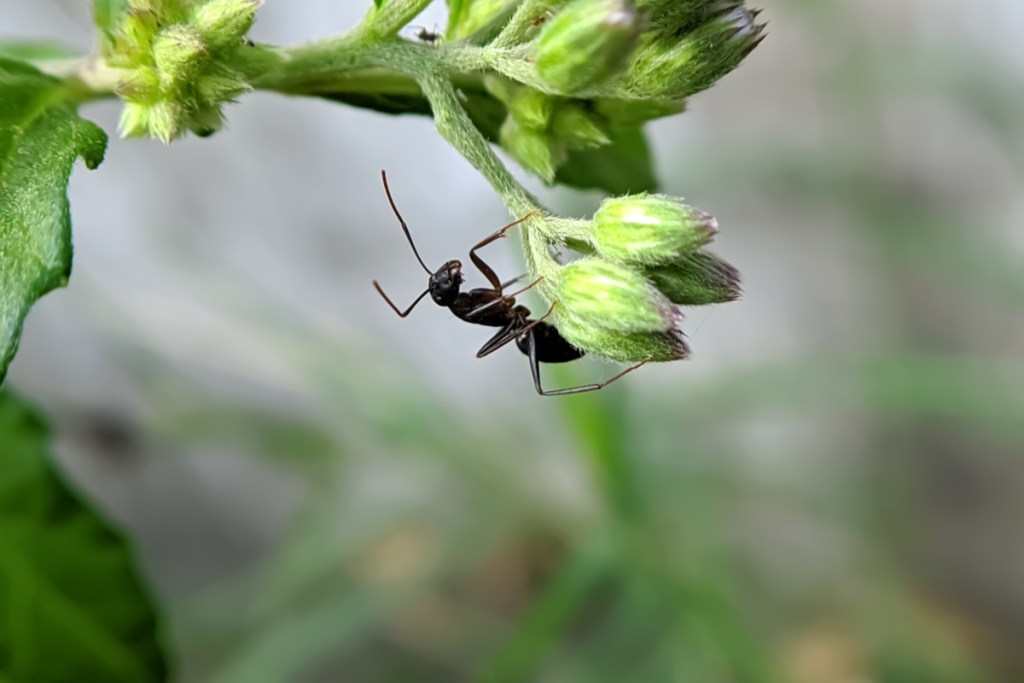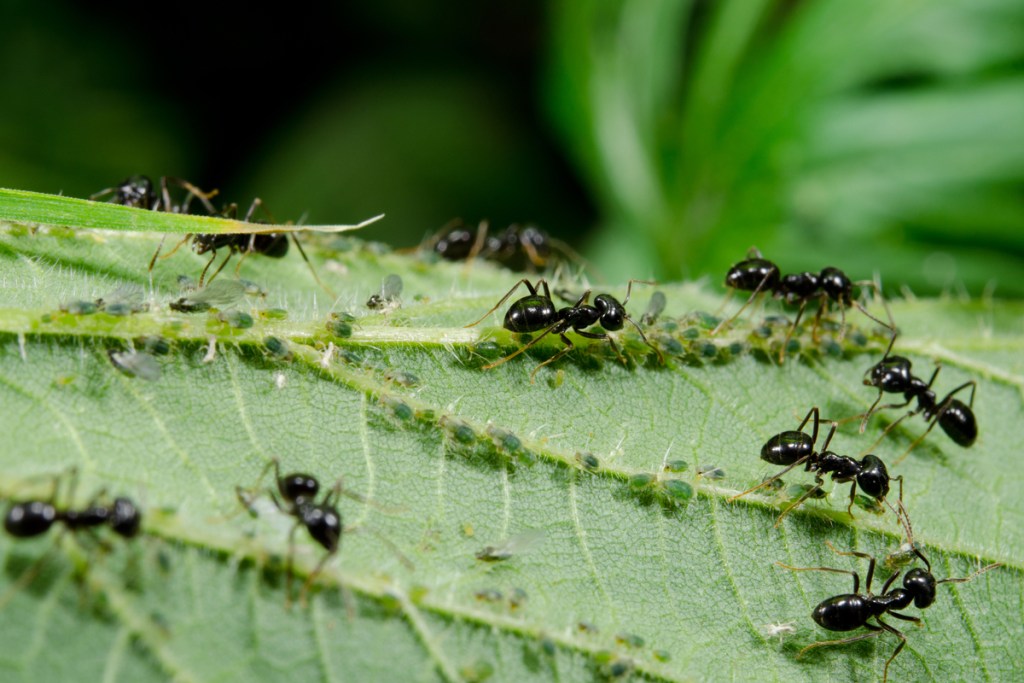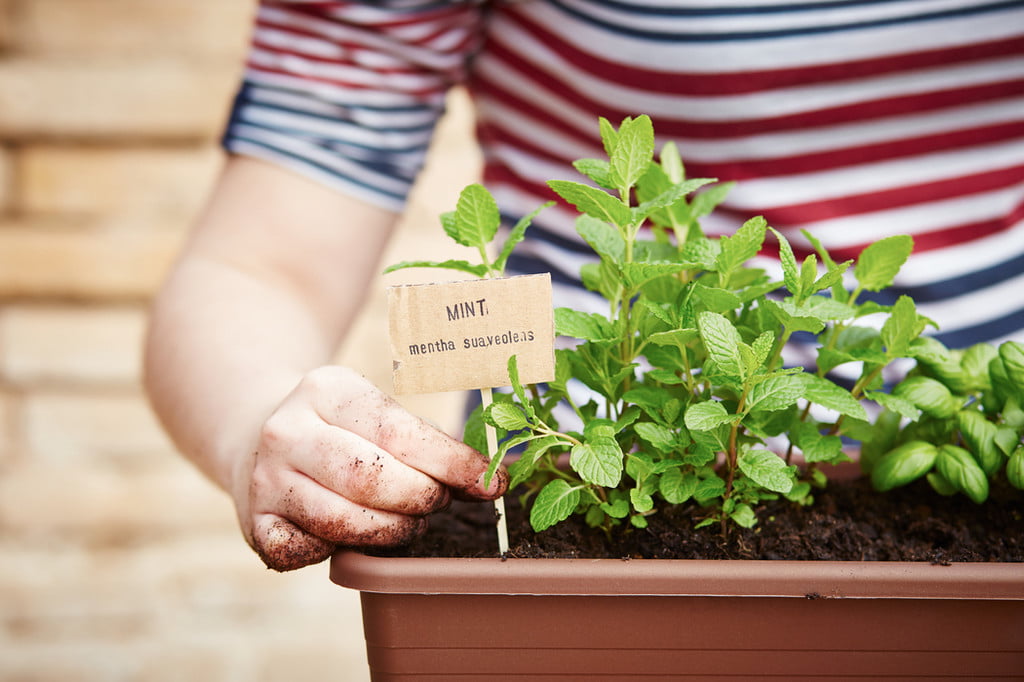
Ants are among the most (if not the most) common pests known by homeowners, lawn care experts, and gardeners. You sit down to a nice relaxing evening on the patio with your favorite snacks, and then here come the ants to investigate. They build their hills, swarm around the yard, and cause trouble when they find their way through cracks in your home’s foundation and into the kitchen.
Contents
- Why it’s worth removing ants from your garden
- What ants do in your garden
- How to get rid of ants in the garden
- How to prevent ants from wreaking havoc in your garden
So naturally, it may be concerning when you see an anthill forming in your garden. The strange thing about ants, though, is that they aren’t bad all the time. Before we go over natural pest control remediesand how to get rid of ants in the garden, here are some things to consider.

Why it’s worth removing ants from your garden
Perhaps the biggest reason gardeners have ant populations removed is that they attract other pests. How? Well, ants love sugar. Sap-sucking insects, such as aphids, naturally produce a sticky substance called “honeydew” that ants love to feed on. If ants are present in a garden where aphids or other sap-sucking insects are around, the ant colony will work to protect this other little pest so that the population grows and the ants have more of that honeydew substance to feed on.
Recommended Videos
In other words, if you already have an aphid pest problem, ants that appear will only make that aphid problem worse by helping it grow. So if you aren’t interested in an even larger pest population using your garden as a feeding ground, you may want to consider having the ants removed.
Related
- What is a chaos garden, and why should you start one this spring?
- If your yard gets a lot of afternoon light, these are the afternoon sun plants for you
- 5 essential spring lawn care tips you need to know
Signs of an ant infestation
There are a few different signs of an ant infestation to consider when you’re trying to decide if there’s a problem you need to get under control. These include:
- Ant nests
- Ant pathways
- Live ants
When you see a few live ants around your plants, it may not be a big deal if you don’t see a nest or a line of ants going back and forth. But if a couple of ants lead to a trail of ants that leads to a hill? You’ve got a bit of trouble on your hands.

What ants do in your garden
Besides attracting more unwanted pests, large concentrations of ants in your gardens can have numerous adverse effects on your garden. Some species of ants are known for causing damage to both your person and your property. Farm ants, for example, sting when they’re disturbed or perceive a threat, which could make working in your garden an unpleasant experience when you’re simply trying to tend to your crops. Some species, such as carpenter ants, bite for a similar reason. Even worse: after ants bite, they spray a type of acid into the wound.
When you’re pruning, planting, or just inspecting your plants and start suffering bites and stings, it’s enough of a reason not to want to go back. But we’re here to help make sure that you can continue to enjoy your outdoor space, even if you find yourself sharing it with some unwanted ant guests.
Is it all bad?
Surprisingly, ants in the garden aren’t always a bad thing. Although they attract sap-sucking insects, they also are a natural form of pest control. They eat the young or the eggs of some pest species and even have a knack for disturbing them while feeding. Also, because of how ants tunnel and build nests underground, they help aerate the soil in your garden, which makes it easier for nutrients, oxygen, and water to move through and reach the roots of your plants.
The unfortunate part of all this is that you’ll have to weigh the benefits against the drawbacks. If you don’t have any plants in your garden that are prone to sap-sucking insects, and if the species of ant that’s made its home there will not hurt you, it may be worth it to let a small colony live. Some gardeners even purposefully introduce ants to their garden environment for the reasons mentioned earlier. But there’s always the risk of a small colony becoming too large, so you might be better off removing it as soon as you see it.

How to get rid of ants in the garden
Removing ants from your garden can be done both naturally and with chemical products. In most situations, you should lean toward the natural method first so you cause the least amount of damage to your plants and the surrounding environment as possible.
Here are a handful of natural solutions you can try:
- Spray diluted Epsom salt on the ants. Although there are a few ways to use Epsom salts, the most consistent method simply requires diluting Epsom salt with water and spraying it directly onto the ants.
- Pour boiling water on the anthill. If you have a larger ant problem and know where the nest is, you can use this method to naturally kill the colony. It may take a couple of attempts, and you’ll want to wait until the ants are mostly asleep for the night (same as you would do with bees before spraying the nest).
- Put artificial sweetener near the ants. Although this method isn’t conclusive, some say this trick works for getting rid of an ant infestation. If it’s your last-ditch attempt before switching to a chemical solution, it may be worth a try.

How to prevent ants from wreaking havoc in your garden
If you want to be a few steps ahead of those pesky ants, it’s a good idea to prevent their presence in the first place. You can start with growing some ant-repelling plants, such as lavender, basil, mint, and rosemary — these herbs have strong scents that keep ants at bay. Some savvy gardeners also leave citrus and cucumber peels to discourage ants from gathering at specific spots. Strong spices, such as ground cinnamon and cayenne pepper, can potentially deter ants, too. If you have loose-ground coffee handy, you could also sprinkle it in your garden to keep ants from tracing their scent trails.
While deterring ants from your garden, do keep in mind your home, since it can be annoying for these garden pests to become house pests. Ideally, you want to seal your doors and windows to prevent any points of entry. It’s also possible to incorporate any of the methods above near your house’s points of entry.
If all the natural methods of ant removal fail, you can try using an insecticide that’s effective on ants or calling in pest control for extreme measures. We recommend trying the natural methods first, both for prevention and removal, to keep the rest of your garden as safe as possible from any harmful chemicals.
Editors' Recommendations
- Here’s what you should know about the updated USDA Hardiness Zone Map
- Hibiscus care: Everything you need to know
- Gooseneck loosestrife might be the perfect plant for your pollinator garden – here’s what to know
- When are pears in season? What you need to know
- Zone 9b planting guide: Everything you need to know about nourishing a garden in this warm climate